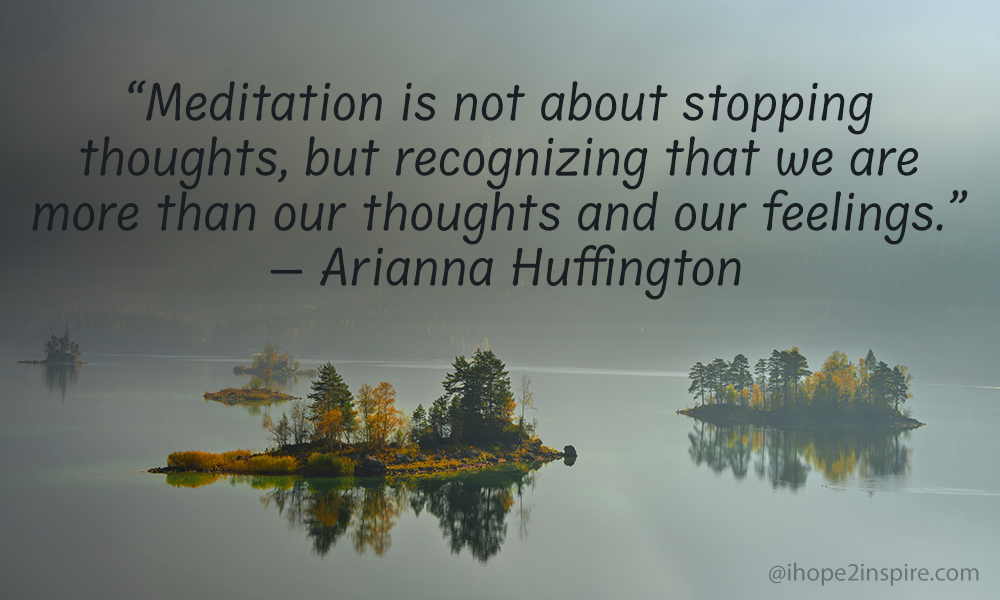“Feelings come and go like clouds in a windy sky. Conscious breathing is my anchor.”
― Thich Nhat Hang
“Self-observation is the first step of inner unfolding.”
― Amit Ray
Cultivating Calm and Rewiring Your Mind
If you’ve ever felt like life moves too fast or that stress is slowly taking over, you’re not alone. Many of us engage in physical exercises and healthy eating to care for our bodies, but we often neglect our mental health—the very foundation of our well-being. Meditation is the ultimate mental exercise, allowing us to train our brains, calm our minds, and even improve our overall health. Here’s everything you need to know to start incorporating meditation into your daily routine.
Why Meditation Matters
Meditation isn’t just about sitting in silence; it’s an intentional practice to rewire your brain. Research shows that meditation can help us decrease stress and elevate our emotional resilience, allowing us to live more balanced lives. While mindfulness meditation doesn’t instantly make us happy all day, it helps us find joy even amidst life’s ups and downs. Meditation enables you to embrace your full range of emotions—from happiness to sadness and everything in between—in a healthy way, reducing stress and creating space for thoughtful responses instead of emotional reactions.
Mental Health Is as Important as Physical Health
We often dedicate ourselves to physical regimens—whether hitting the gym or following healthy meal plans—but mental health deserves equal attention. Meditation is one of the best ways to train your brain to focus, relax, and build a healthy mindset. When your mental health improves, your physical health benefits, too! After all, a calm mind often leads to better sleep, a stronger immune system, and reduced tension across the body.

Types of Meditation: Find What Works for You
There are so many types of meditation you can try, and they all share one fantastic benefit: they help reduce stress and improve your physical health! Some methods focus on being mindful, others on deep breathing, and some even use fun visualization exercises.
No matter which one you choose, you’re taking a wonderful step towards feeling more relaxed and healthier. So, why not give it a go? You might just love what it does for you!
Step-by-Step: How to Start Your Meditation Practice
Meditation can fit seamlessly into your lifestyle. Here’s how to get started:
1. Set a Time
Meditation works best when done regularly, so aim for daily sessions. While there’s no mandatory duration, 20 minutes is a great starting point. If that feels overwhelming, even 5-10 minutes can deliver powerful results.
2. Create a Comfortable Space
You don’t need expensive equipment to meditate—a quiet, warm spot with a comfortable seat is enough. You can sit cross-legged on a yoga mat, towel, or rug, or opt for a sturdy chair or even your bed. Just ensure your posture is upright, as this boosts focus and centers your body.

3. Focus on Mindfulness
To anchor yourself in the present moment, start by closing your eyes and tuning into your senses:
– What can you smell? Is there a subtle scent in the air or the smell of the mat beneath you?
– What can you taste? Is there any lingering taste in your mouth, such as the freshness of water or the remnants of coffee?
– What can you hear? Are there gentle sounds around you, like the rustle of leaves, distant chatter, or the soothing rhythm of your breath?
By doing this, you’ll feel more connected to your body and less consumed by the thoughts buzzing in your mind. Mindfulness during meditation grounds you and helps quiet mental chatter.
4. Overcoming the Wandering Mind
It’s important to remember that a wandering mind is a natural part of meditation practice. It’s not a failure—it’s just part of learning. Even experienced meditators are no strangers to mental distractions.
The challenge lies in recognizing when your thoughts start drifting and gently bringing your focus back to the present moment, often using your breath as a grounding point.
When your mind wanders, **imagine yourself noticing the distraction as an accomplishment, not a mistake**. You’ve become aware —and that’s the goal of meditation! Simply congratulate yourself for noticing and gently bring your attention back to your breath or current focus. Over time, you’ll strengthen your ability to stay centered.

What Happens When You Meditate Regularly?
When practiced consistently, meditation transforms your mind and body, offering tangible benefits:
– Stress Reduction: Meditation helps regulate your nervous system, decreasing overreactions to stressors.
– Improved Focus: You’ll notice an enhanced ability to concentrate and maintain attention in daily activities.
– Emotional Stability: By learning to observe thoughts and emotions without judgment, meditation improves mood balance.
– Improved memory: Better focus through regular meditation may increase memory
– Better sleep: Meditation can shorten the time it takes to fall asleep and improve sleep quality.
Additionally, meditation creates space to respond thoughtfully to life rather than reacting impulsively, allowing for better relationships and communication.
Quick Tips to Build a Meditation Habit
1. Start Small: Begin with short sessions—setting aside even 5 minutes each day makes a difference.
2. Consistency is Key: Make meditation part of your routine, like brushing your teeth or exercising.
3. Expect Distractions: Don’t aim for perfection. Instead, expect that your mind will wander during meditation—and learn to celebrate when you notice it.
The Mind-Body Connection: Meditation’s Physical Benefits
Meditation isn’t just good for your mind; it has tangible effects on your physical health as well. Relaxing the brain through mindful practices reduces cortisol (the stress hormone), which can lower blood pressure and relieve muscle tension. Meditation acts as a reset for your entire system, harmonizing mental and physical health.

Closing Thoughts: Transform Your Life with Meditation
Meditation is a practice that reminds us of the strength we carry within to calm our minds, embrace the present, and find balance in life’s chaos. Even if you’re new to meditating and find your thoughts wandering, this is part of the journey—not a flaw. By showing up consistently, you’ll build resilience and start to notice the changes unfold naturally.
So, grab a quiet spot, find a comfortable position, and close your eyes. Allow yourself the gift of meditation and watch how it transforms your day, your mindset, and ultimately your life.

